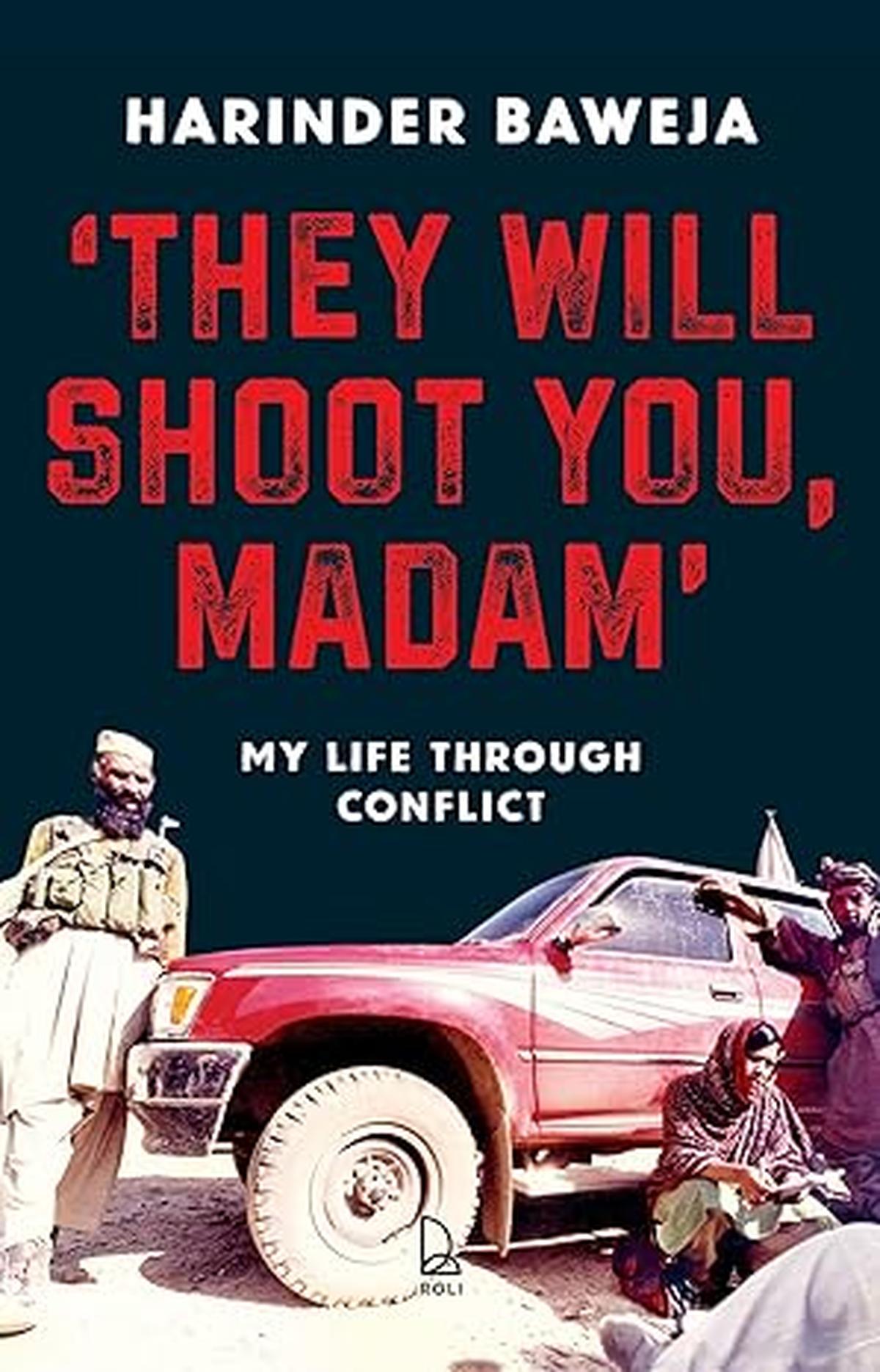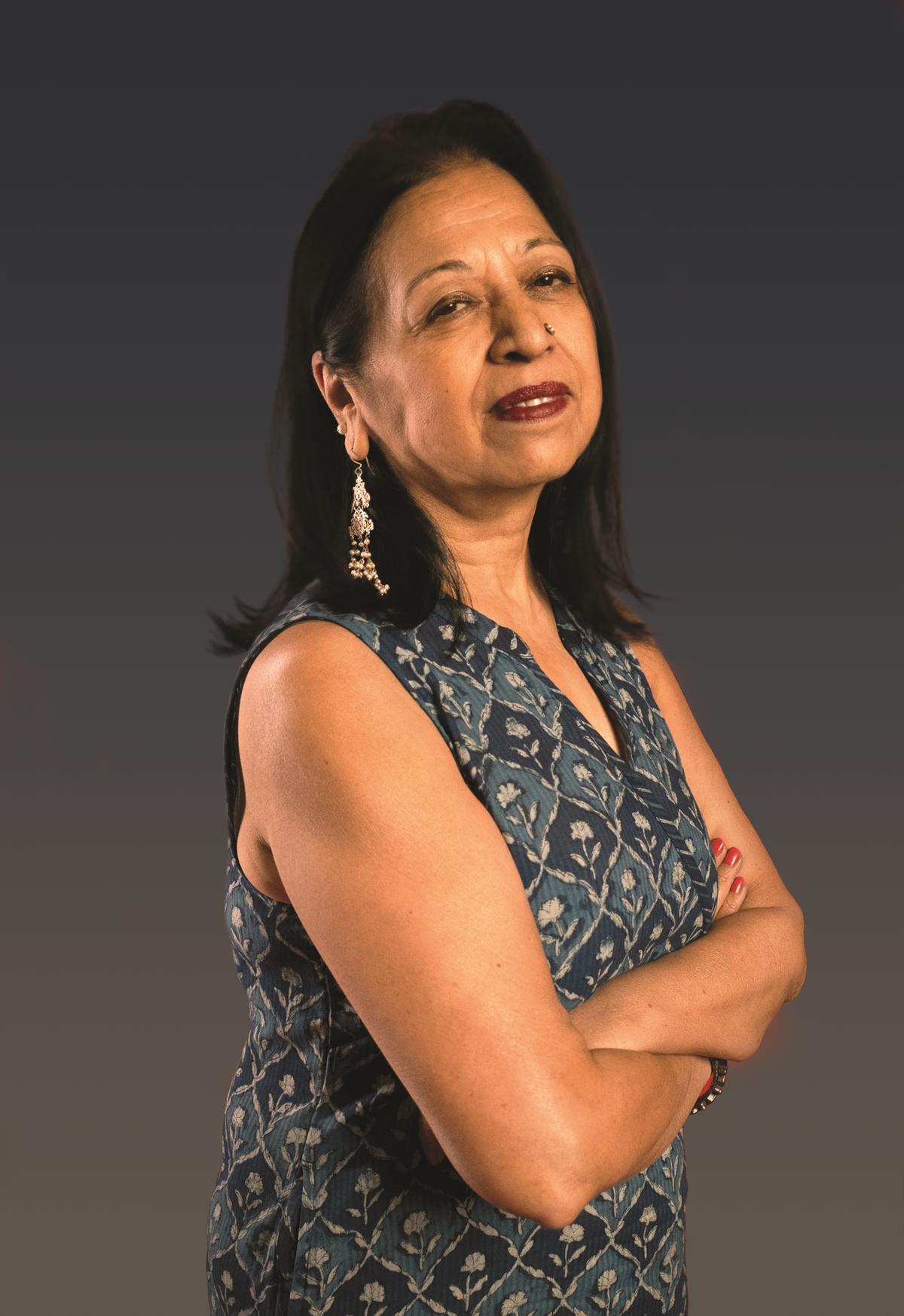Harinder Baweja began her journalistic career in the 1980s and has worked through several Prime Ministers from Indira Gandhi to Narendra Modi. In her four-decade stint, she has reported on some of the cataclysmic events that have shaped India as a nation. In an interview about her memoir, ‘They Will Shoot You, Madam’: My Life Through Conflict (Roli Books), Baweja explains why mixing religion and politics makes for a heady cocktail but adds dangerous fuel to conflicts. An edited excerpt:

Question: While admitting at your book event that Indira Gandhi had paid with her life for the “mistake” of Operation Blue Star, P. Chidambaram has sidestepped Rajiv Gandhi’s accountability for the 1984 Delhi carnage.
Answer: It is well known that Indira Gandhi was shot dead by her bodyguards because she signed off on a costly mission to send the Army and its tanks into the most revered Sikh shrine. Chidambaram used the word ‘riot’ while referring to the 1984 carnage and that alone agitated the audience at the event. The burning of Sikhs in 1984 remains a wound that has not healed. The lack of justice fuels that fire and at the same event, I said that Rajiv Gandhi’s son Rahul is still trying to address that wound by repeatedly going to the Golden Temple as a kar sewak, a community worker. The audience was quick to point to Rajiv Gandhi’s words — when a big tree falls, the earth shakes. Embers of conflict are easy to stoke and his comment justifying the carnage remains a part of the Sikh community’s collective conscience.
Q: In the wake of the Babri Masjid demolition, your investigation disproved L.K. Advani’s claim that temples had been damaged across Kashmir. But in the run-up to the 2024 consecration of the Ayodhya temple, there were, as you say, broadcast vans emblazoned with “Ram aayenge”. What does such a difference bode for journalists?
A: The surrender of several media houses to the pressure from the government keeps so many journalists from staying true to their essential remit which is to hold the powerful to account. Today, when we try to call out the diabolical lie that was propagated by the BJP after the demolition of the Babri Masjid, we are called ‘anti-nationals’ and asked to go to Pakistan. Seriously speaking, I would love to go back to Pakistan as a journalist if I were given a visa.

Harinder Baweja started her career in the 1980s and has reported across the tenures of multiple Prime Ministers, from Indira Gandhi to Narendra Modi.
| Photo Credit:
ISHAAN CHAWLA
Q: What is your view on the security lapses concerning the Pahalgam episode?
A: The Pahalgam attack punctured the Centre’s ‘Naya Kashmir’ narrative. Unfortunately, instead of analysing the glaring intelligence and security failures at Pahalgam, several TV studios asked for Chief Minister Omar Abdullah’s head. He is not even in charge of security, a domain that rests with J&K’s lieutenant governor. Instead of seeking accountability from the Centre, the ‘godi media’ was happy conquering Lahore one day and Karachi the next.
Q: As a woman journalist, how did you cope with the avowed misogyny of Taliban?
A: I am a journalist and don’t like being referred to as either a ‘Sikh journalist’ or a ‘woman journalist’. I have never sought concessions because I happen to be a woman but my tryst with the Taliban helped me understand their edicts only because I was a woman. It remains the most claustrophobic assignment of my over four-decade career, but my gender gave me crucial insights into how Afghanistan’s women are being erased and how their freedoms are being snatched. The Taliban foreign minister tried to bring the same medieval thought process to Indian soil [on October 10] but a fierce pushback saw him host a second press conference. Unfortunately, the women of his country continue to live cloistered lives and Afghanistan will soon be a country without teachers, nurses and doctors. Ironically, we are willing to lay out the red carpet for the Taliban militia but are not willing to speak to the Kashmiris who condemned terrorism after the Pahalgam attack.
Q: You visited the headquarters of Lashkar-e-Taiba near Lahore within a fortnight of 26/11. You could not have done anything of the sort post Pahalgam. What are the implications of this drastic change for journalists?
A: There was a time when journalism itself was fearless. The phrase ‘godi media’ makes a lot of us flinch. I remain optimistic because there are discerning consumers of news who know where to get their information from. The truth has a way of emerging despite the attempts to stifle it.
Q: Having tracked the extensive abuse of religion for decades, what is your big takeaway?
A: Mixing religion and politics makes for a heady cocktail but adds dangerous fuel to conflicts. Conflicts are murky enough; adding electoral strategies to the fold makes conflict murkier. Lastly, conflict should not be used as a strategy to strengthen vote banks. It is sad that windows of opportunity are frittered away and it was personally heartbreaking for me to hear Himanshi Narwal say after losing her husband in Pahalgam what political parties and governments need to have said: don’t demonise Kashmiris and Muslims. The faultlines will only fester till that message is understood for its full import.
The interviewer is the author of Caste Pride: Battles for Equality in Hindu India.
Published – October 24, 2025 06:00 am IST

